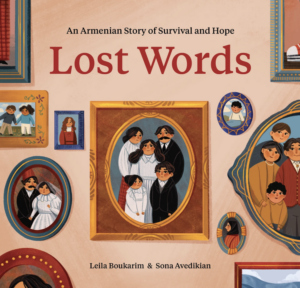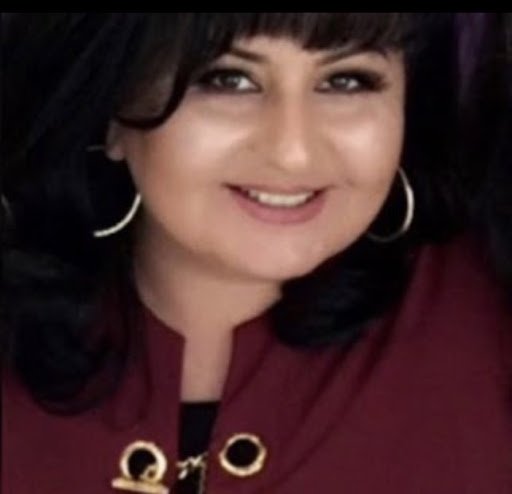Day: July 9, 2024
NPR News: 07-09-2024 3PM EDT

Georgia’s national security strategy is outdated, according to opposition lawmakers. In comments to Eurasianet, they assert that the country is unprepared for threats posed by Russia and other actors.
“We don’t have any strategy document on the government level which will evaluate the threats and challenges towards national security and plan to prevent those threats,” said Teona Akubardia, deputy head of parliament’s Defense and Security Committee.
Written in 2011, the country’s National Security Concept reflects an era in which Georgia faced different risks than it does now. In particular, Russia had not yet annexed Crimea or launched its full-scale invasion of Ukraine – moves that many Georgians see as a continuation of Russia’s occupation of the breakaway regions of Abkhazia and South Ossetia after a brief war in 2008.
Some clauses in the National Security Concept plainly are in need of revision. One, referring to conflict between Armenia and Azerbaijan over Nagorno-Karabakh, states that renewed conflict “would weaken the security of all three South Caucasian nations and increase Russia’s political influence over the entire region.” Azerbaijan decisively reclaimed the breakaway region last fall.
Other points reflect a time when negotiating a deal with Russia seemed possible. But after 2022’s full-scale invasion of Ukraine, they come across as naive. “Russia must be persuaded to undertake a non-aggression obligation vis-à-vis Georgia and to observe the norms of international law, including the principle of not deploying military forces on a sovereign nation’s territory without its consent,” reads one clause from the National Security Concept.
Writing in 2020, one former Georgian defense official called the concept “outdated,” adding that “after its adoption [in 2011] the situation has changed dramatically in the world, in the region and in Georgia itself.”
It is not for lack of effort that the concept has not been revised. Lawmakers have raised the issue numerous times since Russia’s invasion of Ukraine, claiming that on February 24, 2022, the security environment for countries adjacent to Russia decisively shifted. But calls for updates to the plans have fallen on deaf ears among government leaders, said Anna Buchukuri, a member of parliament from the opposition “For Georgia” party.
“If the problem was only about the documents per se, it wouldn’t have been a big deal,” she said. But “the scale of the problem is much bigger and much broader than just a document.”
In early 2023, a group of lawmakers including Buchukuri, Akubardia, and an MP with the opposition “Reform Group,” Khatuna Samnidze, invoked a Georgian parliamentary rule to summon then-Prime Minister Irakli Garibashvili to answer questions about the government’s national security policies. They saw the ruling Georgian Dream government as standing in the way of updating the security concept, plans for which had been discussed by the country’s national security council at least as early as 2021.
Garibashvili used the opportunity to reiterate government talking points about keeping Georgia out of the brewing confrontation between Russia and the West, referring to vague notions of Georgia emerging as a “second front” of the Russian-Ukrainian war, according to local media reports from the time. “I would like to remind everyone that today our country is neither a member of the European Union nor a member of NATO, we do not have any security guarantees,” he said, implying that Georgia needed to be delicate when adopting new policies related to Russia.
A Georgian Dream spokesperson declined to comment for this article.
Georgia is in a precarious position vis-à-vis Russia, which occupies roughly 20 percent of Georgian territory. Fears about the possibility of renewed Russian aggression have abated little since the 2008 war. The government, in trying to pursue a balanced foreign policy that doesn’t irk Moscow, has moved back into the Kremlin’s orbit. Georgian Dream’s controversial ramming through of a law regulating ‘foreign agents’ burned bridges with the United States and Europe while drawing the praise of Kremlin spokesperson Dmitry Peskov.
Opponents of Georgian Dream’s anti-Western direction do not see peace in appeasing Russia.
“When it comes to Georgian security, being as close as possible with our Western partners, especially when it comes to the United States and EU, has always been very important,” said Buchukuri. She told Eurasianet that the lack of will to update Georgia’s national security policies is directly tied to the country’s geopolitical shift away from the US and EU.
Secretary of State Antony Blinken’s “comprehensive review” of US assistance to Georgia recently proved to extend to security agreements as well. On July 5, just days before Brussels’ envoy to Tbilisi said accession talks had been halted, the Department of Defense announced that it would be indefinitely postponing a planned joint military exercise.
“The decision to postpone this iteration of NOBLE PARTNER is due to the Georgian government’s false accusations against the United States and other western entities, to pressure Georgia to open a second front against Russia to alleviate pressure on Ukraine, and of participating in two coup attempts against the ruling party,” the statement read.
In light of accusations that the government’s new course after adopting the ‘Russian law’ is a welcome change for the Kremlin, one line from 2011’s National Security Concept seems prescient: “The Russian Federation aims to turn Georgia into a failed state, to hinder the realization of Georgia’s European and Euro-Atlantic choice, and to forcibly return Georgia to the Russian political orbit.”
On the last two points, Moscow seems to have gotten what it wants.
 Leila Boukarim’s book, Lost Words: An Armenian Story of Survival and Hope, is a great resource for teachers as well as families to utilize while learning about the Armenian Genocide. The children’s book uses rich language while dealing with the complex topic of the Genocide. The beautiful illustrations on the book’s canvas capture the meaning of the words. The Armenian Weekly spoke with Boukarim, who describes her writing process and why the book has meant so much for her and her family.
Leila Boukarim’s book, Lost Words: An Armenian Story of Survival and Hope, is a great resource for teachers as well as families to utilize while learning about the Armenian Genocide. The children’s book uses rich language while dealing with the complex topic of the Genocide. The beautiful illustrations on the book’s canvas capture the meaning of the words. The Armenian Weekly spoke with Boukarim, who describes her writing process and why the book has meant so much for her and her family.
Talar Keoseyan (T.K.): Please tell us a little bit about yourself, where you were born and about your family.
Leila Boukarim (L.B.): I was born in Lebanon but spent my childhood in Saudi Arabia, the UAE, the U.S. and Canada before moving to Lebanon when I was almost 17 years old. That’s where I spent the next 15 years of life, after which I moved to Singapore and then to Berlin nine years later. I met my husband Haig in Lebanon, and we have two wonderful boys, now 14 and 11 years old.
T.K.: What motivated you to write Lost Words?
 Leila Boukarim
Leila Boukarim
L.B.: I got the idea to write Lost Words after my son asked me where he was from. Haig and I knew we wanted to tell our kids about the Armenian Genocide, about their great-grandfather and their ancestors, and it felt impossible at the time to share all this with our kids in a way that was child-friendly and simple enough that they could process it. I had been writing children’s books for a few years and decided then that I would try to do just that.
T.K.: What do you hope your book accomplishes?
L.B.: I want this book to at least start the conversation with young children, to plant seeds of curiosity that will lead them to ask the right questions when they’re older and ready for more. I’m a strong believer in the importance of discussing difficult truths with our young ones in a way they can handle and in the impact this has on shaping them into adults who are empathetic, critical thinkers and brave enough to stand up against injustice no matter the cost.
T.K.: Why was this such an important project for you?
L.B.: Learning about the Armenian Genocide at the age of 18 changed me in ways I never thought possible. What shocked me more than the scale of the horrors that had taken place in 1915 was the fact that all my history books had skipped over them. It was an awakening that made me more curious about all the things we’re not taught and the reasons why they’re not taught. Our failure to acknowledge atrocities and talk about them paves the way for more. We must equip our little ones with the tools to recognize the signs and speak out before it’s too late.
T.K.: How did you and the illustrator connect?
L.B.: It was my amazing editor who found Sona [Avedikian]! Our publication date was set at four years from the day the offer was made, because the publisher wanted to find the perfect Armenian illustrator for this project — and they did.
T.K.: Do you have any other books in the works?
L.B.: I do. Later this year, I have a second graphic novel for young readers coming out — Zips and Eeloo Make a Friend. And next year, I’ve got three picture books to look forward to — Mariam Dreams: The Story of Mariam Al-Shaar, Soufra, and a Food Truck of Hope, Rima and the Painter and Sundays are for Feasts.
T.K.: Anything else you would like to add?
L.B.: I hope to see many more Armenian children’s books out in the world soon!
Author information

Talar Keoseyan
Talar Keoseyan is a mother, educator and writer. She is the author of Vanna’s Adventures (discusses Armenian traditions and customs); Mom and Dad, Why Do I Need to Know My Armenian Heritage? (a children’s book about being proud of our heritage); Our Tigran and Tigran’s Song (written in honor of Tigran Harutyunyan, a fedayee from the 44 Day War). Talar was a member of the Philadelphia AYF (Papken Suni and Sebouh chapters), as well as Homenetmen, Hamazkayin and ARS. She is currently a member of the La Crescenta “Talin” ARS chapter. She can be reached at talar725@gmail.com or Hokees1111 on Instagram.
The post Leila Boukarim on writing “Lost Words: An Armenian Story of Survival and Hope” appeared first on The Armenian Weekly.
CNN) — US military bases across Europe were placed on a heightened state of alert last week for the first time in a decade after the US received intelligence that Russian-backed actors were considering carrying out sabotage attacks against US military personnel and facilities,… pic.twitter.com/bk7HgQbzKN
— josette caruso (@josettecaruso) July 9, 2024
